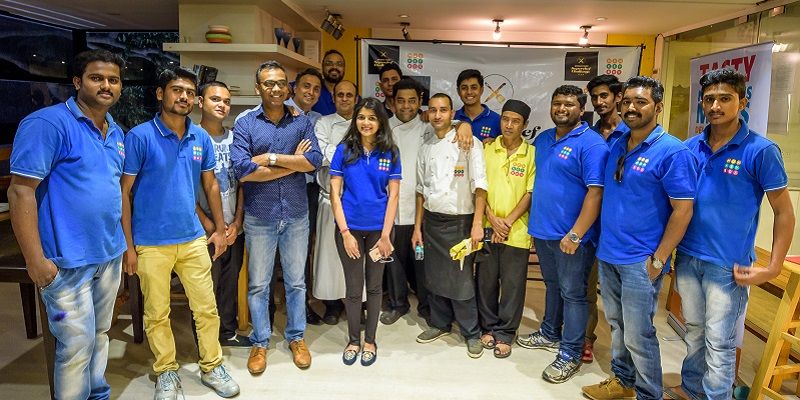With Rs 10 lakh monthly revenue, MonkeyBox brings foodtech to schools
With the Swiggys and the Zomatos, food delivery is passé. But school kids and working parents have been ignored, MonkeyBox aims to fill this gap.
For 29-year-old marketing executive Priya Mehra, one of the biggest advantages of today’s world is the on-demand economy. “From food to cabs, everything is available at the click of a button. It has made life simpler,” she says.
In today’s fast-paced world, services like Swiggy, Zomato, Ola, and Uber have managed to solve many problems across cities. One issue, however, has remained unresolved — satisfying working parents that their children’s diets are healthy and balanced.
It was to address this very gap that MonkeyBox was started in Bengaluru in October 2015.
What do they do?
It is a subscription-based foodtech startup that provides children’s school meals. The meals, which are provided for children between the ages of three and 18, are, the team claims, balanced and portioned as per Recommended Dietary Allowance (RDA) guidelines. Parents can opt for packages on the basis of duration ( five, 10, or 22 days) as well as the number of meals, whether one, two, or all three.
Forty-year-old Sanjay Rao realised that most young parents with their super busy schedules find it difficult to keep track of everyone’s food preferences and that it is time-consuming and labour-intensive to do this while balancing work and home commitments. He says,

Like any other working couples, my childhood friend 38-year old Sandeep Kannambadi and I, along with our spouses, also found planning and executing tasty food for our kids a constant struggle. When I checked with my peers and did further market research, I found that it was a common challenge faced by young parents among nuclear families. Thus, the idea of MonkeyBox was born.
Workings of the platform
The platform’s aim is to deliver nutritious and fresh breakfast, lunch, and after-school snacks directly to schools. The food is delivered 30 minutes before the respective breaks.
The platform works on a just-in-time sourcing model from partnerships with local farms and distributors. Sanjay adds that the food is prepared in a safe, state-of-the-art, and hygienic environment, with no artificial flavours, colours, additives, or MSG. Parents can also check the kitchens if they want to.
With their professional experience being in fields unrelated to foodtech, one of Sanjay and Sandeep’s biggest challenges was to put together a team that would be right for this job. Sanjay has over 20 years in the IT industry and Sandeep has over 18 years of engineering and management experience in the software industry. The duo has also founded Sportingmindz Technology prior to MonkeyBox.
Team and future
“We had to work very closely with the chef and nutritionist teams so that we could bring them on board for our vision. The food industry is new to us as we come from tech backgrounds and so far nobody has set up a kitchen or delivery system for this kind of model,” Sanjay says.

But roping in Sadananda Maiya of the famed MTR brand and family helped the team in sourcing ingredients and setting up the kitchen.
Apart from the bigger foodtech startups like Swiggy, Zomato, and FreshMenu, subscription-based food startups like Hungerbox and Fitgo have tried to crack the business. However, their rate of growth and survival is yet to be seen.
Also, although Tier I cities like Bengaluru easily bring in the initial traction, sustainability issues creep in when startups look at geographic expansion. Food as a business is also operation-heavy, and the team will need strong expertise to handle the requirements.
The team claims to have revenues of Rs 10 lakh per month, also claiming to be breaking even at the kitchen level. At present, they have over 600 active subscribers and over 900 orders per day. The team has raised a seed round of funding from Blume and a couple of HNIs.
“We plan to expand across Bengaluru by identifying two more clusters in the city. We will set up one kitchen in Bengaluru North and one in Bengluru East, which will cover 75 percent of Bengaluru, aiming to reach 12,000 subscriptions by the end of academic year 2017,” says Sanjay.











